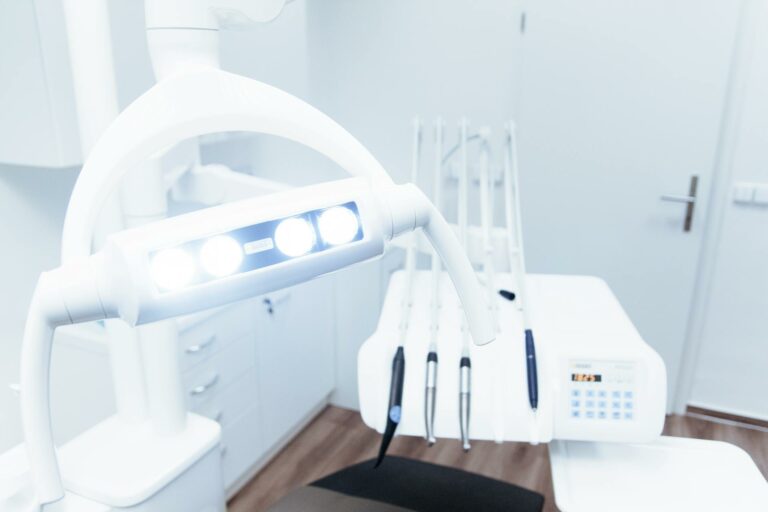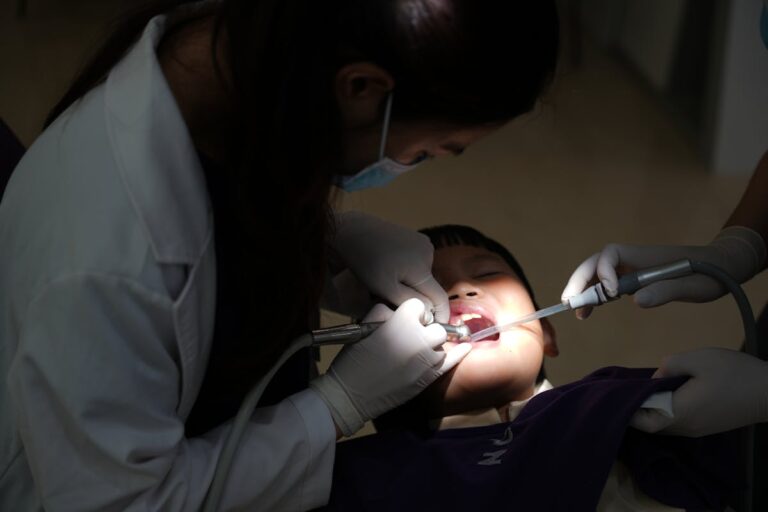The Hidden Link Between Oral Health and Heart Disease: What NYC Residents Need to Know
Your mouth might be small, but its impact on your heart is enormous. Recent 2024 research reveals that poor oral hygiene increases heart disease risk by up to 67%, with NYC seeing over 23,000 heart and diabetes-related deaths in 2023. Studies now demonstrate that something as simple as regular flossing reduces stroke risk by 22% and atrial fibrillation risk by 12%.
The connection between oral health and heart disease isn’t just correlation—it’s a direct pathway where bacteria from your mouth can travel through your bloodstream and affect your cardiovascular system. For NYC residents facing urban stress, limited access to preventive care, and fast-paced lifestyles, understanding this connection could be life-saving.
This relationship affects millions of New Yorkers daily, yet many remain unaware that their dental health directly impacts their heart health. Let’s explore how taking care of your teeth and gums can protect your heart, and why this matters especially for those living in America’s most demanding city.
How Poor Oral Health Directly Affects Your Heart
The pathway from your mouth to your heart is more direct than you might imagine. When you have gum disease or dental infections, harmful bacteria don’t stay confined to your oral cavity. These bacteria can enter your bloodstream through inflamed or bleeding gums, creating a bacterial highway that leads directly to your cardiovascular system.
Recent 2024 research shows that oral bacteria can infiltrate arterial walls and trigger dangerous inflammation throughout your body. When you have tooth infections, your likelihood of developing cardiovascular disease increases by 2.7 times compared to people with healthy mouths. This isn’t a distant possibility—it’s happening in real-time whenever oral bacteria breach your gum line.
The Bacterial Highway From Mouth to Heart
Think of your mouth as the gateway to your entire circulatory system. When periodontal disease creates pockets of infection around your teeth, keystone pathogens including *Porphyromonas gingivalis*, *Treponema denticola*, and *Tannerella forsythia* use your white blood cells and red blood cells as vehicles to travel throughout your body.
These bacteria are particularly clever—they use C3b-complement receptor interactions to hitchhike through your bloodstream. Once they reach your heart and blood vessels, they can attach to arterial walls and contribute to the formation of atherosclerotic plaques. These plaques narrow your arteries and increase your risk of heart attacks and strokes.
At [Practice Name], we often see patients who are surprised to learn that their bleeding gums could be affecting their heart health. The truth is, every time your gums bleed during brushing or flossing, you’re potentially allowing bacteria to enter your bloodstream.
How Gum Inflammation Triggers Heart Problems
Your immune system’s response to oral bacteria creates a cascade of inflammation that extends far beyond your mouth. A groundbreaking 2024 study published in *Immunity* discovered that gingival epithelial cells activate IL-23 cytokine production when they detect microbial disruption in your mouth.
This IL-23 activation switches your body’s inflammatory response from protective to pathogenic. Instead of just fighting off oral bacteria, your immune system begins producing chronic systemic inflammation that contributes to atherosclerotic plaque formation in your arteries.
The inflammatory proteins released in response to gum disease—particularly C-reactive protein—circulate throughout your body and damage blood vessel walls. This makes your arteries more susceptible to cholesterol buildup and blood clot formation, directly increasing your heart attack and stroke risk.
Scientific Evidence Connecting Gum Disease to Heart Disease
The scientific evidence linking oral health to heart disease has become overwhelming. A comprehensive 2024 study of 2,730 participants found a significant association between dental caries and hypertension, with statistical significance showing a Cramer’s V value of 0.119 (p < .001).
The numbers are striking: people who have had multiple tooth extractions show a 67% increased risk of developing hypertension. Those with bleeding gums face a 69% higher risk of cardiovascular disease. These aren’t small increases—they represent substantial elevations in risk that could affect millions of people.
Major Research Findings From 2024
Research from Case Western Reserve University found that tooth loss serves as a significant predictor of cardiovascular disease mortality. This isn’t just about missing teeth—it’s about what tooth loss represents: years of chronic bacterial infection and inflammation that have taken their toll on your entire cardiovascular system.
The American Heart Association’s latest research shows that excellent oral hygiene reduces heart failure odds by 53%. Regular dental visits within two years show 57% lower heart failure odds. Even basic daily brushing and yearly professional cleaning reduce cardiovascular risk by 9% and 14% respectively.
The Role of C-Reactive Protein in Heart Disease Risk
C-reactive protein (CRP) serves as a key biomarker linking oral inflammation to cardiovascular disease. When you have active gum disease, your liver produces elevated levels of CRP in response to the chronic bacterial infection in your mouth.
High CRP levels indicate systemic inflammation and predict future cardiovascular events. Studies show that people with both elevated CRP levels and poor oral health face compound risks for heart attacks and strokes. This protein essentially serves as a messenger, carrying inflammatory signals from your mouth to your heart.
Common Oral Health Problems That Increase Heart Disease Risk
Several specific oral health conditions create pathways for cardiovascular complications. Understanding these conditions helps you recognize when your oral health might be putting your heart at risk.
Periodontal Disease and Cardiovascular Complications
Periodontal disease represents the most significant oral health threat to your cardiovascular system. This condition creates deep pockets around your teeth where bacteria can thrive and multiply. As these bacteria colonies grow, they produce toxins that break down the tissues supporting your teeth while simultaneously entering your bloodstream.
Severe periodontitis doesn’t just threaten your teeth—it serves as a chronic source of bacterial infection that your immune system must constantly fight. This ongoing battle creates the persistent inflammation that damages your cardiovascular system over time.
How Tooth Loss Predicts Heart Problems
Tooth loss often reflects years of untreated bacterial infection and inflammation. Research consistently shows that people with fewer teeth face higher risks of cardiovascular disease, heart attacks, and strokes. Each missing tooth represents not just cosmetic concerns, but a history of bacterial exposure that may have affected your entire circulatory system.
The pattern of tooth loss also matters. People who lose multiple teeth from the same area of their mouth often have experienced concentrated bacterial infections that create particularly high levels of systemic inflammation.
Dental Infections and Endocarditis Risk
Dental infections, particularly abscesses, create concentrated sources of dangerous bacteria that can travel directly to your heart. In severe cases, these bacteria can cause endocarditis—a potentially life-threatening infection of your heart valves.
While endocarditis remains relatively rare, even minor dental infections contribute to your overall bacterial load and inflammatory burden. This is why dentists often recommend antibiotic premedication for certain dental procedures in patients with existing heart conditions.
Why NYC Residents Face Higher Risks for Both Conditions
Living in New York City creates unique challenges for maintaining both oral and cardiovascular health. NYC has 10.1% of its population—approximately 871,569 residents—living in high-need oral health areas where access to preventive dental care remains limited.
The combination of urban stress, demanding work schedules, and lifestyle factors compound risks for both oral and cardiovascular health. Many New Yorkers delay dental care due to time constraints or cost concerns, allowing minor problems to develop into serious health threats.
Urban Stress and Its Impact on Oral and Heart Health
NYC’s high-stress environment affects both your oral and cardiovascular health in multiple ways. Chronic stress elevates cortisol levels, which suppress your immune system’s ability to fight oral bacteria. Stress also increases your risk of teeth grinding (bruxism), which can damage your teeth and gums.
Additionally, stress directly impacts your cardiovascular system by raising blood pressure and increasing inflammation throughout your body. When you combine stress-related oral health problems with stress-related cardiovascular effects, NYC residents face compound risks that require proactive management.
Access to Preventive Care in New York City
Despite having numerous healthcare facilities, many NYC residents struggle to access regular preventive dental care. Work schedules, insurance limitations, and geographic barriers can prevent people from receiving the routine care that protects both their oral and cardiovascular health.
At [Practice Name], we understand these challenges and work to provide flexible scheduling and comprehensive care that addresses both immediate dental needs and long-term health protection.
Simple Steps to Protect Both Your Mouth and Heart
Protecting your cardiovascular health through oral care doesn’t require complex interventions—simple, consistent habits can dramatically reduce your risks. The key is understanding that every action you take to improve your oral health simultaneously protects your heart.
The Heart-Healthy Oral Hygiene Routine
Your daily oral hygiene routine serves as your first line of defense against both dental disease and cardiovascular complications. Brush your teeth twice daily with fluoride toothpaste, focusing on the gum line where bacteria accumulate. Spend at least two minutes brushing, ensuring you clean all surfaces of your teeth.
Flossing proves particularly crucial for cardiovascular protection. American Heart Association research shows that regular flossing reduces ischemic stroke risk by 22% and cardioembolic stroke risk by 44%. When you floss, you remove bacteria before they can enter your bloodstream and travel to your heart.
Use an antimicrobial mouthwash to reduce bacterial loads in areas your toothbrush and floss might miss. This additional step helps control the bacterial populations that contribute to both gum disease and systemic inflammation.
Professional Dental Care for Heart Disease Prevention
Regular professional dental care provides benefits that extend far beyond clean teeth. Preventive dental care shows a 14% reduction in cardiovascular disease risk and 21% lower risk for acute myocardial infarction among high-risk patients.
Professional cleanings remove bacterial buildup that home care cannot eliminate. Your dental hygienist can reach areas between your teeth and below your gum line where dangerous bacteria accumulate. These cleanings interrupt the bacterial colonization process that leads to both periodontal disease and cardiovascular complications.
Professional examinations also allow for early detection of oral health problems before they become sources of systemic infection. Catching and treating gum disease early prevents the chronic bacterial exposure that threatens your cardiovascular health.
When to Seek Professional Help in NYC
Recognizing when your oral health requires professional intervention can prevent both dental complications and cardiovascular risks. Certain warning signs indicate that bacteria in your mouth may already be affecting your overall health.
Warning Signs That Require Immediate Attention
Seek immediate dental care if you experience persistent bleeding gums, especially if the bleeding occurs during normal activities like eating or speaking. Swollen, red, or tender gums indicate active bacterial infection that could be releasing toxins into your bloodstream.
Persistent bad breath, loose teeth, or changes in your bite pattern suggest advanced periodontal disease that requires prompt treatment. Dental abscesses or severe tooth pain indicate concentrated bacterial infections that pose immediate risks to your overall health.
Pay attention to systemic symptoms that might connect to oral health problems. Unexplained fatigue, low-grade fevers, or general feelings of illness could indicate that oral bacteria are affecting your entire body.
Finding Integrated Care in New York City
The most effective approach to protecting both your oral and cardiovascular health involves coordinated care between your dentist and physician. Look for dental practices that understand the oral-systemic health connection and communicate with your medical providers about your overall health status.
Consider seeking care from providers who offer comprehensive health assessments that include cardiovascular risk factors. This integrated approach ensures that your oral health treatment plan supports your overall cardiovascular health goals.
Take Action to Protect Your Heart Through Better Oral Health
The connection between your oral health and heart disease isn’t just scientifically proven—it’s a daily reality that affects millions of people. Every time you brush, floss, or visit your dentist, you’re making choices that protect both your smile and your cardiovascular system. The research is clear: excellent oral hygiene can reduce your heart failure risk by 53%, while regular dental visits can lower your cardiovascular disease risk by 14%.
Don’t let the demands of NYC life compromise your health. At [Practice Name], we understand the unique challenges facing New York residents and provide comprehensive care that protects both your oral and cardiovascular health. Our experienced team works with you to develop sustainable oral health routines that fit your lifestyle while providing maximum protection against both dental disease and heart disease. Contact us today at [Phone Number] to schedule your comprehensive examination and take the first step toward protecting your heart through better oral health.







